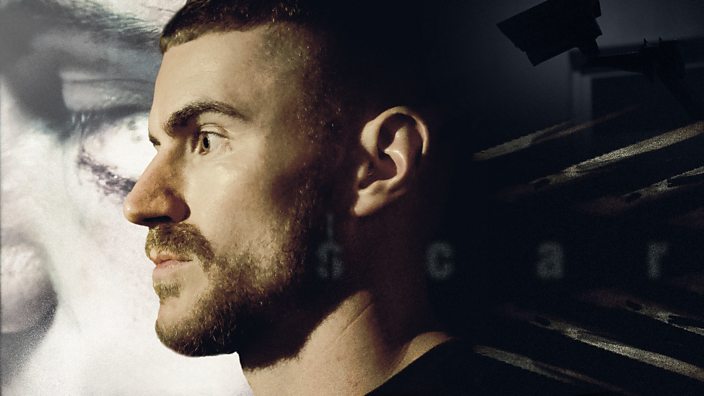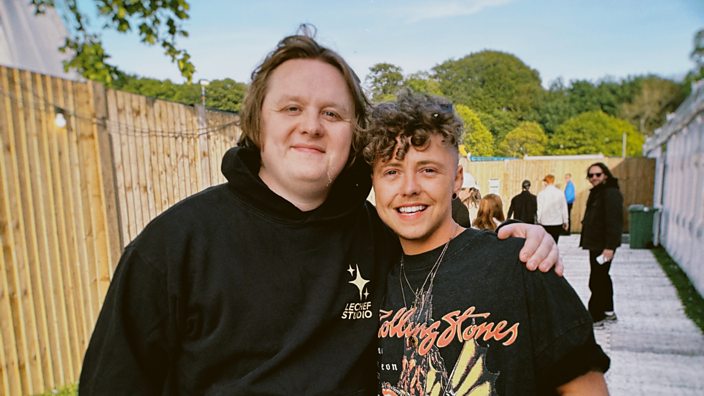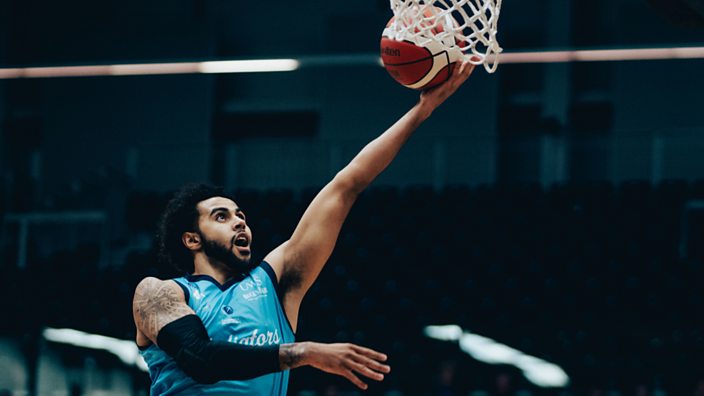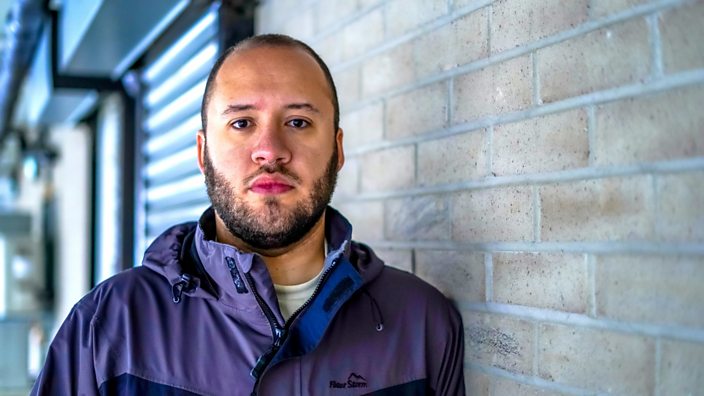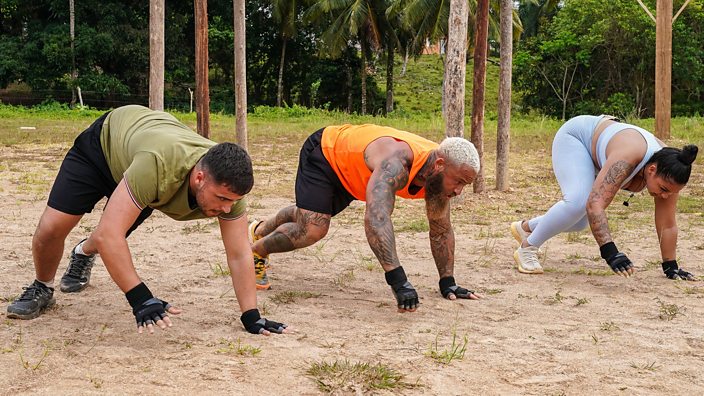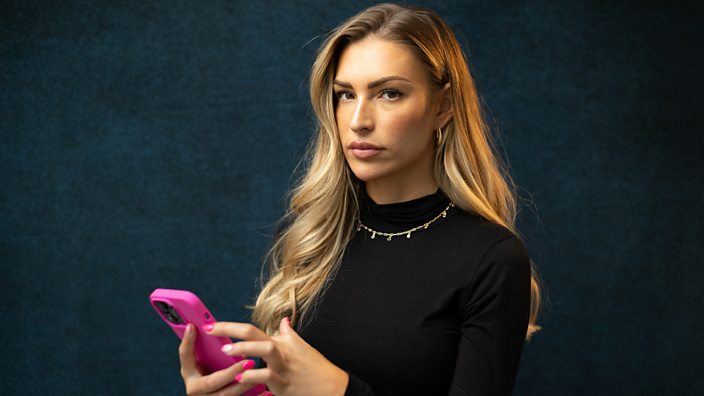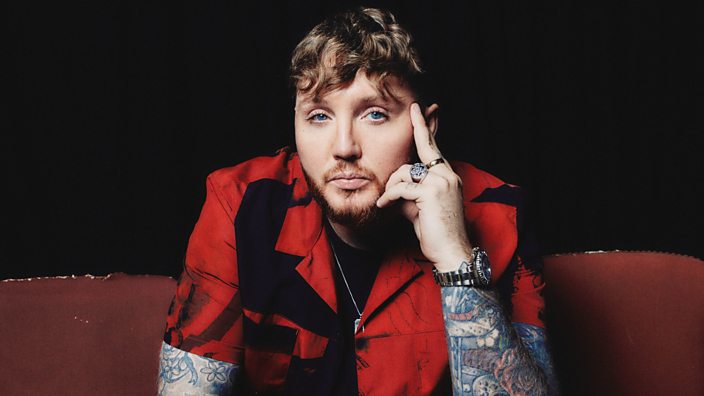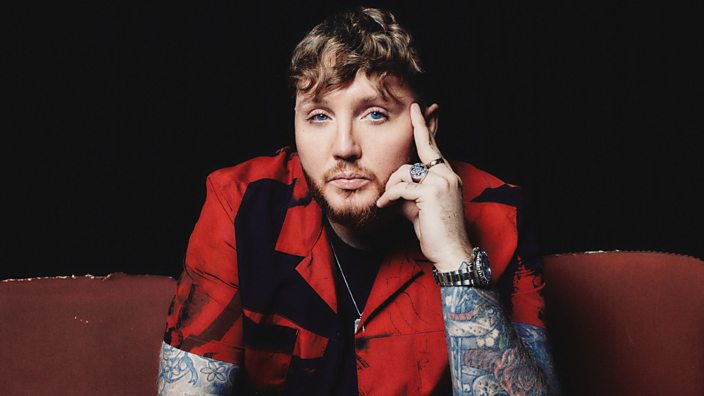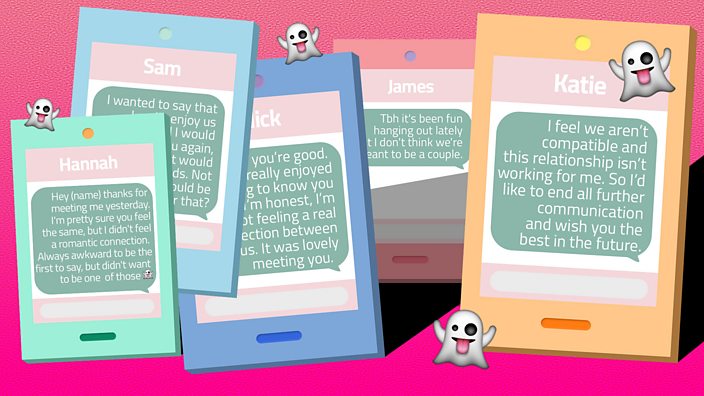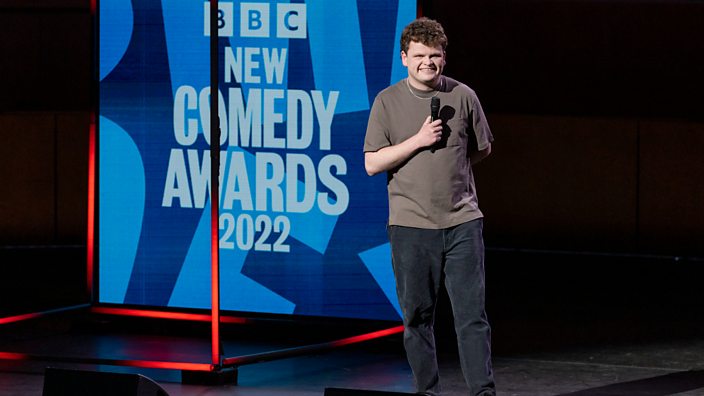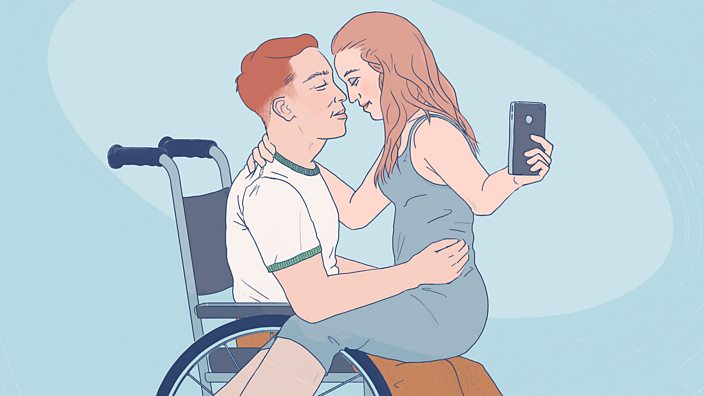 BBC / David Weller
BBC / David WellerDisability and dating: 'Why do people think I'm my boyfriend's carer?'
Dating is complicated at the best of times, but social stigma means dating someone with a disability is rarely discussed. After Hannah and wheelchair user Shane Burcaw spoke out over online comments dismissing their relationship, we spoke to other couples about their experiences.
After Hannah and Shane recently tied the knot at an intimate home ceremony, they shared a photo of the day on social media.
"We're husband and wife!!!!" wrote Hannah. "I'm incredibly lucky to now be married to the greatest guy I know."
But they were met with messages like this:
"For real though... does she also have another partner for having sex with?"
"Is he rich or something?"
"Oh my God... this must be photoshopped."
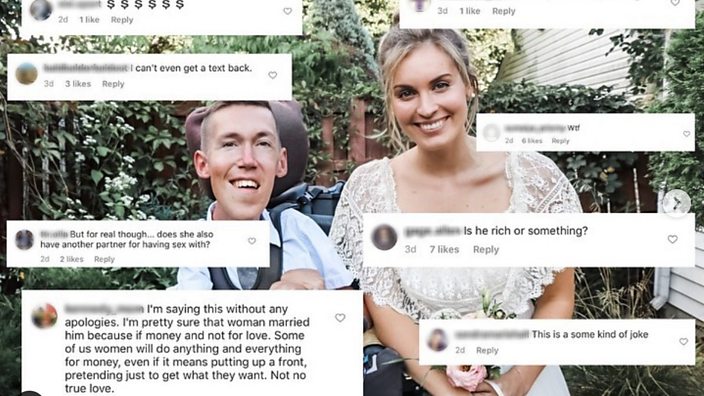 Instagram / hannahayl
Instagram / hannahaylThe reason, YouTubers Shane and Hannah believe, is because he's disabled and she's not. Shane has spinal muscular atrophy and has used a wheelchair since he was two.
The couple, who live in Minneapolis, Minnesota, tell BBC Three that the knee-jerk response reflects how misinformed many people still are towards disability and dating.
"Our society tells us that disabled people aren't worthy partners," she says. "There's almost no positive representation of disability or dating with a disability in our media, so many people think that disabled people couldn't possibly be in a healthy, wonderful relationship.
"This means when they see Shane and I, they invent conspiracy theories to try to reconcile our relationship with what they’ve been taught."
'The media makes disability undesirable'
One survey, from 2014, suggests that 44% of Brits sampled wouldn't consider having sex with someone who had a physical disability, while 50% wouldn't rule out the possibility.
Shane, 28, says the lack of positive representation often made him feel like he "would never find a partner".
"The things I saw in the media made disability out to be extremely undesirable," he says.
"This led me to believe that most people would not want to be bothered with dating someone who had a disability."
Hannah, 24, says that while Shane's disability never bothered her (they got chatting after she saw one of his vlogs online), she'd equally "never met anyone who used a wheelchair or had a physical disability."
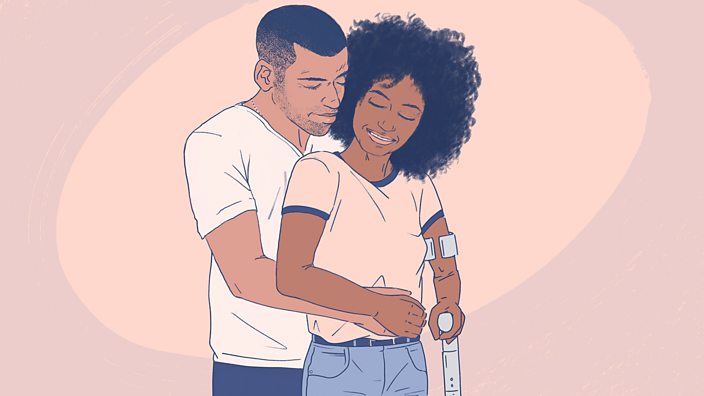 BBC / David Weller
BBC / David WellerThere's also a debate about how disabled and non-disabled couples describe themselves.
In the US, some couples, including within the disability vlogging community, have started to use the term "interabled".
But it's not widely accepted. Some feel it's an unhelpful reinforcement of narrow-minded, medically-orientated thinking.
"It's inaccurate and focuses on the physical or mental differences between the two people (or more) in a relationship," says disability campaigner and broadcaster Mik Scarlet.
"Disabled people spend far too much time trying to get wider society to understand the 'social model of disability', which suggests we aren't disabled by our bodies but the way society treats us, so when a concept like 'interabled' takes hold it undoes so much of that work."
BBC Three spoke to other young couples about their experiences...
'People assume we're siblings'
Charlie and Gina
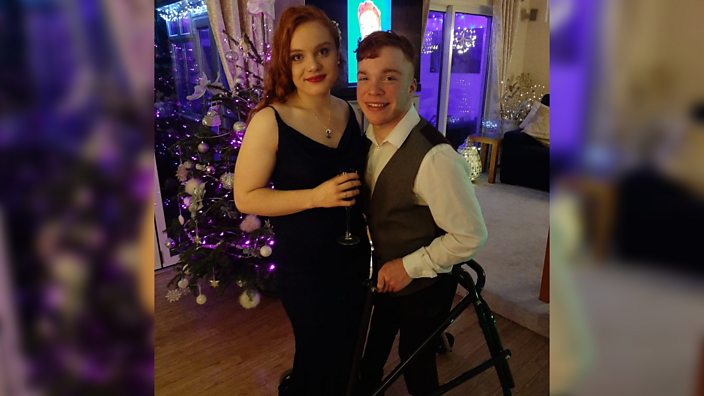 CONTRIBUTOR IMAGE
CONTRIBUTOR IMAGECharlie says...
I have cerebral palsy due to lack of oxygen to the brain at 10 weeks old. I mainly use a wheelchair as I have problems with balance and use of my lower limbs.
Gina and I have been together for just over three years.
Gina's never been fazed by the disability. She did ask a lot of questions at the beginning of our relationship, but I didn't mind that. Since she knew that I was disabled from the beginning, and we developed our relationship online, by the time we met in person we were already quite committed and it didn't matter at all.
In terms of social perceptions, it's interesting that people often assume we're siblings. Sure, we're both ginger, but I think it's easier for people to assume a disabled person would be out with their family instead of having a partner.
We also get a lot of people thanking or praising Gina for being with me, which makes me sound like a booby prize or that she's settled for something she shouldn't have to put up with.
People also seem to think it must be a very one-sided relationship, with Gina doing everything for me. The opposite is true: it's a two-way street just like everyone else's relationships. Yes, she may help physically day-to-day but I support her through mental struggles and everyday life.
If there's one thing I want people to understand it's that relationships are relationships. They have ups and downs, responsibilities, and care and understanding for each other. Having a disability doesn't change that. If you're in a relationship with someone with a disability, it is just that. No ulterior motives.
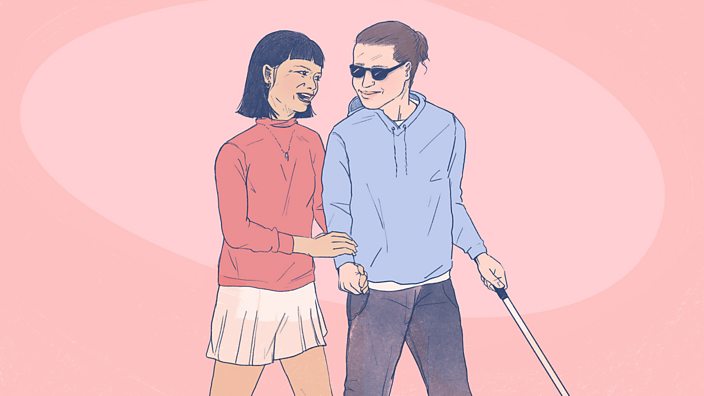 BBC / DAVID WELLER
BBC / DAVID WELLERGina says...
When we first started chatting, I asked Charlie if he minded if I asked some questions... ice-breakers, life questions. I said he could do the same, and we turned it into a fun, silly game.
A lot of mine involved questions about his disability, but I had said that if I asked a stupid question or one he didn’t want to answer, he didn't have to. It helped to get a lot covered, so nothing felt awkward when we met.
Fast-forward three years. When we're out, I've got used to the shocked, sympathy look I get when I mention my boyfriend is a wheelchair user or that I have to assist him with certain tasks. People say, "that must be a lot for you... I bet it was difficult to decide whether you wanted to move forward with the relationship."
The answer, bluntly, is no. I always reply with a compliment to Charlie or explain that no, I am not in a burdensome one-way relationship, but rather with him because he is an amazing, loving and caring person.
I think a lot of the misunderstanding comes from people believing that helping a disabled person can only be a chore - the duty of a paid friend or assistant.
What they fail to understand is that, actually, when I help Charlie, it doesn't weaken the relationship and take the love away. If anything it heightens it. I never use the word carer for this reason, I am Charlie's partner through everything.
'There's a taboo around disability and sex'
Lucy and Arun
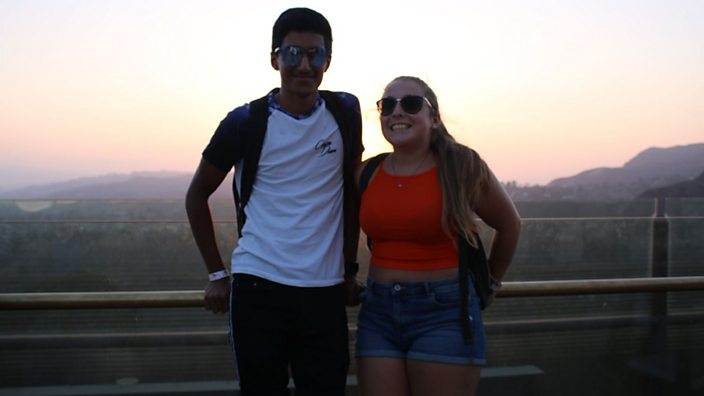 CONTRIBUTOR IMAGE
CONTRIBUTOR IMAGELucy says...
I have fibromyalgia, a musculoskeletal disability. Symptoms include chronic pain, brain fog, chronic fatigue and probably the one that affects me most - mobility. I regularly require the use of a stick or other support.
I met Arun over two years ago on an exchange programme in Los Angeles. As I'm so open, he fell in love with me knowing about my disability.
Arun understands that my body is very different and unpredictable - he's not only the most caring person but also the most supportive.
On a day-to-day basis, I need quite a lot of help to stay mobile as I struggle with public transport, can't walk very far and unfortunately cannot drive at the moment (a lot has to be taken into consideration). I am lucky that Arun drives and will help me run errands like shopping.
The fact that fibro is invisible means we are initially perceived as a couple without the disability, but this means it can come as more of a visible shock to some people.
It's frustrating, as Arun gets inundated with lots of questions. In public I tend to brush it off a lot more whereas he can get quite hot-headed sometimes. However, at home, I have a lot more panic attacks and breakdowns because it gets incredibly overwhelming.
I wish people would understand that my disability doesn't entitle you to any more information about my private life compared to anyone else.
That said, there's definitely a taboo around disability and sex, in that people think you cannot have both.
While this may be true for some cases, I feel people who are disabled have a much deeper appreciation about what it means to be intimate and have sex. It's not just about penetration (sorry to be so blunt), but I think more about the feelings and emotion, the foreplay and the pleasure.
It's a whole experience that I think some non-disabled couples would say that they are lacking.
'Care should exist in all romantic relationships'
Lorna and Rob
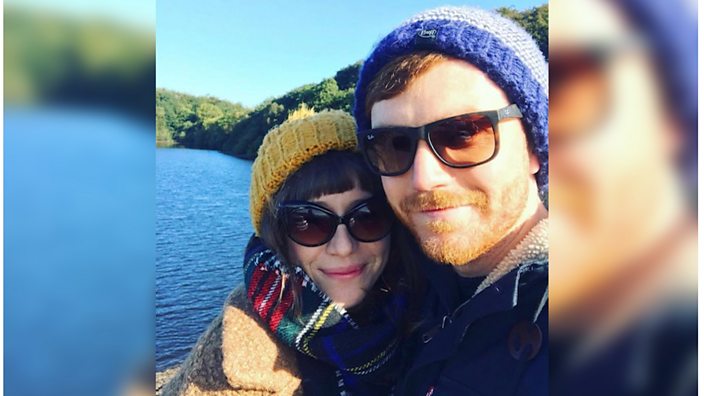 CONTRIBUTOR IMAGE
CONTRIBUTOR IMAGELorna says...
I've been with Rob for 11 years, and married for four. We'd been together for about seven years when I was diagnosed with ME, which causes severe fatigue and leaves me often using a wheelchair and housebound most of the time.
It also means Rob has to help me with some personal care, such as showering and other day-to-day tasks.
I would say it absolutely brought us closer as a couple, and continues to do so. I think care within a relationship, although often tricky to navigate, can be so intimate.
This isn't to say it's been an easy adjustment, for either of us.
The transition has been difficult for me, as my life has changed so drastically. I had to forgo my career as a teacher and that really impacted my sense of self-worth.
However, I'm lucky that I was able to access some therapy on the NHS and my therapist and I did a lot of work on this. The main thing that helped was reframing what we consider to be "helpful".
So although I may not be able to do the hoovering or the cooking, I listen to him when he needs to offload about his day. I do the meal plans to ensure we're both getting a healthy, balanced diet.
The fact is, care of some form should exist in all romantic relationships - abled and disabled - otherwise what exactly are you doing with each other?
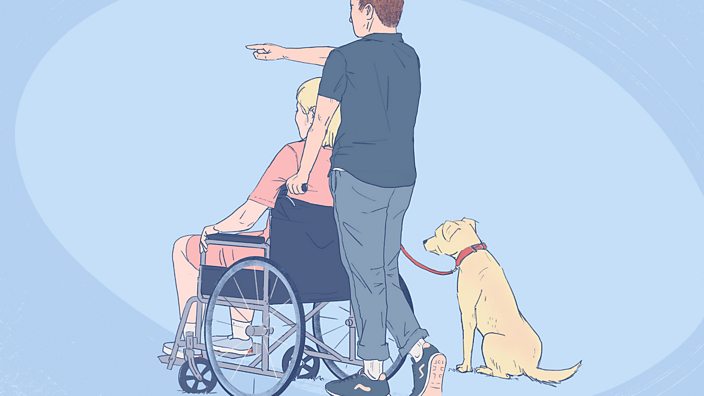 BBC / DAVID WELLER
BBC / DAVID WELLERIn terms of life beyond the home, having a fluctuating condition and chronic fatigue means that we can never really make any concrete plans.
Obviously we still have our moments of frustration, but I would say that it's actually taught us both to be way more flexible and laid-back, and also to live a little more in the present and appreciate the smaller things that are still accessible to us.
Plus, that guy is like, obsessed with me or something, he's happy just being with me! Our sex life is strong, mainly because we communicate.
As a society, we still fail to see disabled people as fully realised human beings with the same spectrum of emotional and physical needs as anyone else.
This needs to change. I lost all my confidence and I worried that my husband wouldn't find me desirable anymore, but that couldn't be further from the truth.
Plus, I still fancy the pants off my husband, so that always helps.
